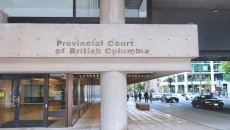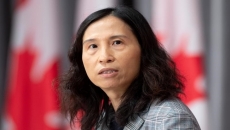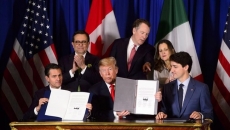The regional district of Metro Vancouver says it has achieved corporate carbon neutrality, balancing its carbon output with its removal from the atmosphere.
Board chairman Sav Dhaliwal said Monday that the regional district became carbon neutral in 2019 and is poised to remain so at least through 2022.
The achievement applies to the corporate organization of Metro Vancouver, not to the broader population of residents or businesses within the region.
The regional government has set a goal of expanding carbon neutrality across Metro Vancouver by 2050, but Dhaliwal said it will require buy-in from everyone.
"Unless we are all committed to it, it can't be done," he said during a news conference at Burns Bog, a protected area in Delta, B.C.
Metro Vancouver's carbon emissions have been offset through initiatives that include parkland acquisitions, the installation of energy efficient boilers and an increase in electric vehicles for staff use, it said in a news release.
Its use of trenchless tunnel construction for major liquid waste infrastructure projects cut down on heavy trucking and caused fewer disruptions. And the ecological restoration of Burns Bog, which is known as the "lungs of the Lower Mainland" for the way it sequesters significant amounts of carbon, also helped the regional government meet its goal, it said.
Adriane Carr, chairwoman of the Metro Vancouver climate action committee, said expanding the achievement to the broader population will require significant shifts in building and transportation.
Across the region, residents and businesses collectively produce about 15 million tonnes of emissions per year, with 65 per cent coming from vehicle use and building heating, she said.
"This won't be easy," Carr said. "But it can be done and must be done — our future generations depend on it."
The federal government has also committed to become carbon neutral by 2050, although it has been criticized by environmental organizations for simultaneously investing in oil and gas projects that produce heavy emissions.
Federal Environment Minister Jonathan Wilkinson said climate change is a "looming crisis on the horizon" and without action, its economic impacts will be worse than those of COVID-19.
"Climate change is a crisis that we know is coming. It's coming more slowly but it is coming in a manner that if we do not act now, the effects will be significantly more devastating from an economic perspective than what we've been having to deal with over the past number of months," said Wilkinson, who participated in the press conference from North Vancouver via video conference.
Reaching carbon neutrality in Canada will take a different approach in each region and industry, he said.
"It will require that we work very carefully to define pathways almost on a sector-by-sector basis, as to how we are going to get there," Wilkinson says.






